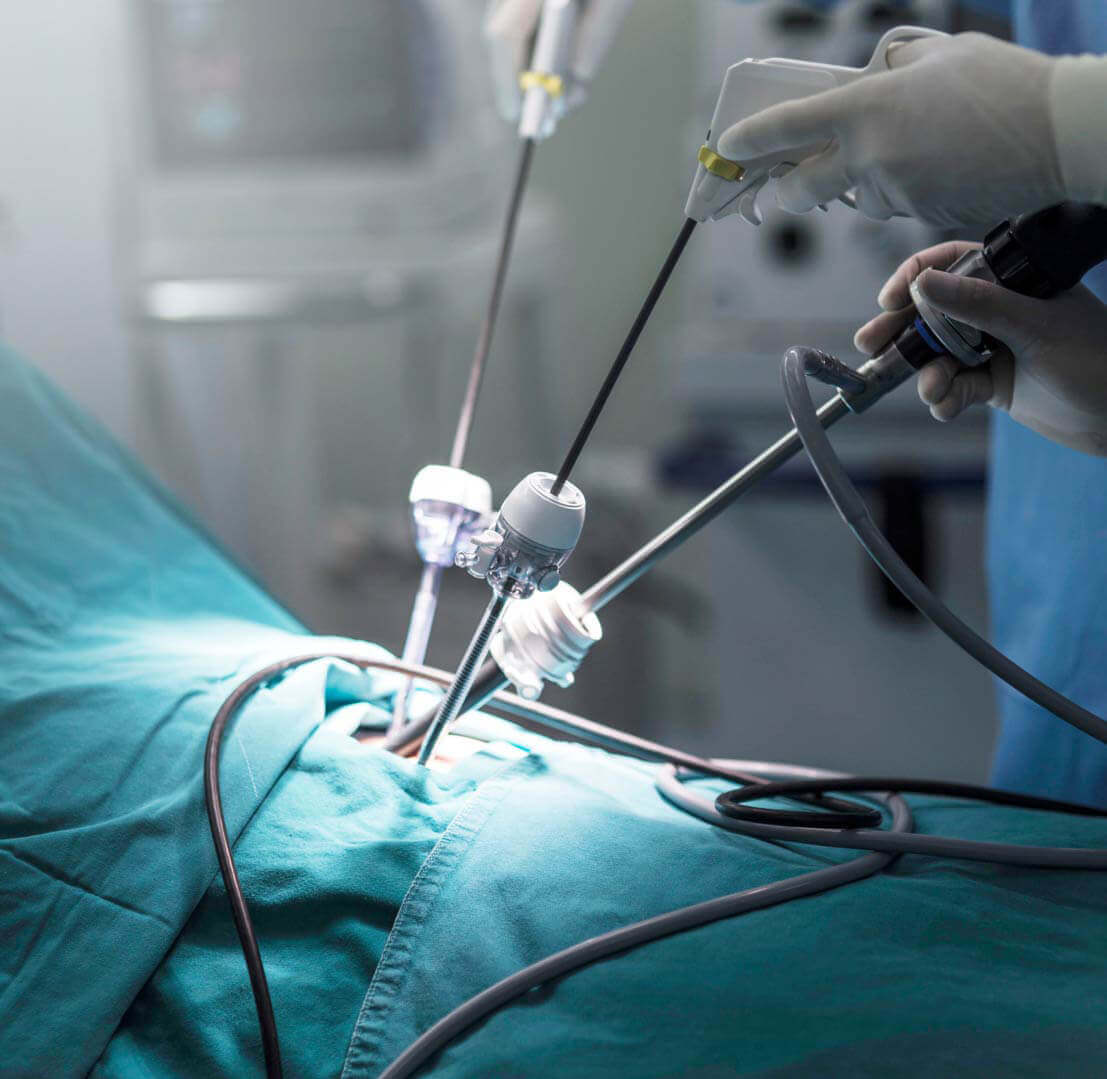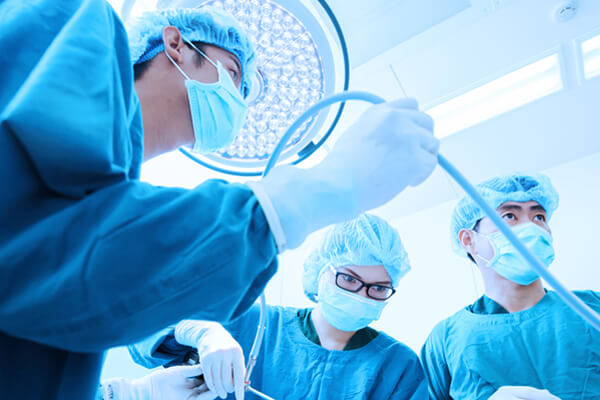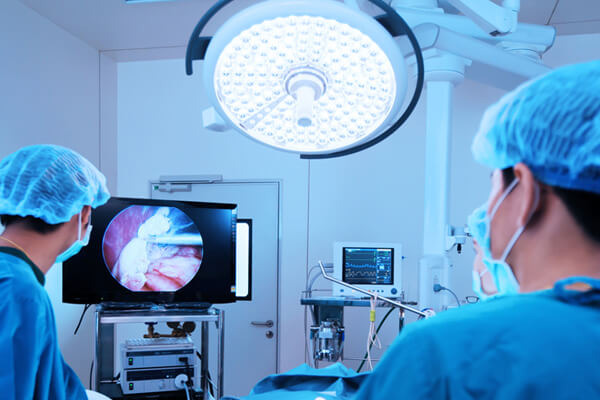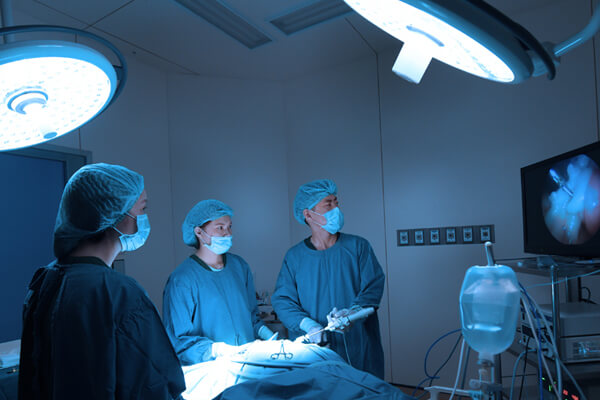- Laparoscopic cholepancreatic bypass with or without duodenal diversion;
- Laparoscopic gastric bypass (gastric bypass);
- Laparoscopic gastric banding;
- Laparoscopic sleeve gastrectomy.
Bariatric & Laparoscopic Surgery
The World Health Organization (WHO) reports obesity as a real disease with serious effects on health, the ability to work, social interaction, as well as the quality and lifespan of the obese person.
It is a dangerous disease, which is associated with a large number of other diseases such as arterial hypertension, diabetes mellitus, sleep apnea and many others.
Bariatrics is the medical science that deals with the disease of obesity and its treatment and is practiced by doctors specialized in metabolic diseases.
In this way, bariatric surgeries are classified into:
- malabsorptive (end result is reduced absorption of food components);
- restrictive (end result is reduced stomach capacity for food); and
- mixed type (absorbent and restrictive, at the same time).

SURGERIES

LAPAROSCOPIC SURGERY
The term Laparoscopy means the inspection of the intra-abdominal organs through a small incision a few millimeters long, where the special optical tool, the Laparoscope, is inserted.
The lack of surgical 'incision' significantly reduces operative STRESS. The method was able to take hold so quickly and replace open methods first of all because it almost eliminated pain and complications related to the 'incision' such as infection, breakdown or post-operative hernia are rare. Finally, the aesthetic result is excellent and the hospitalization time is less than 24 hours.
The Laparoscopic technique allows Gynecologists to safely perform many gynecological operations Laparoscopically (removal of an ovarian cyst, tubal plastic surgery, endometriosis, ectopic pregnancy, lysis of adhesions, hysterectomy, etc.)

GENERAL SURGERY
- Laparoscopic treatment of gastroesophageal reflux disease (GERD) and hiatal hernia;
- Laparoscopic treatment of obstructive ileum/symbiotic disease;
- Laparoscopic colectomy which is usually done as assisted;
- Laparoscopy for staging and palliative treatment of neoplasms of the gastrointestinal system;
- Laparoscopic treatment of gastroduodenal ulcer;
- Laparoscopic liver surgery;
- Laparoscopic adrenalectomy;
- Laparoscopic pancreatic surgery;
- Laparoscopic splenectomy;
- Laparoscopic pelvic lymphadenectomy.

